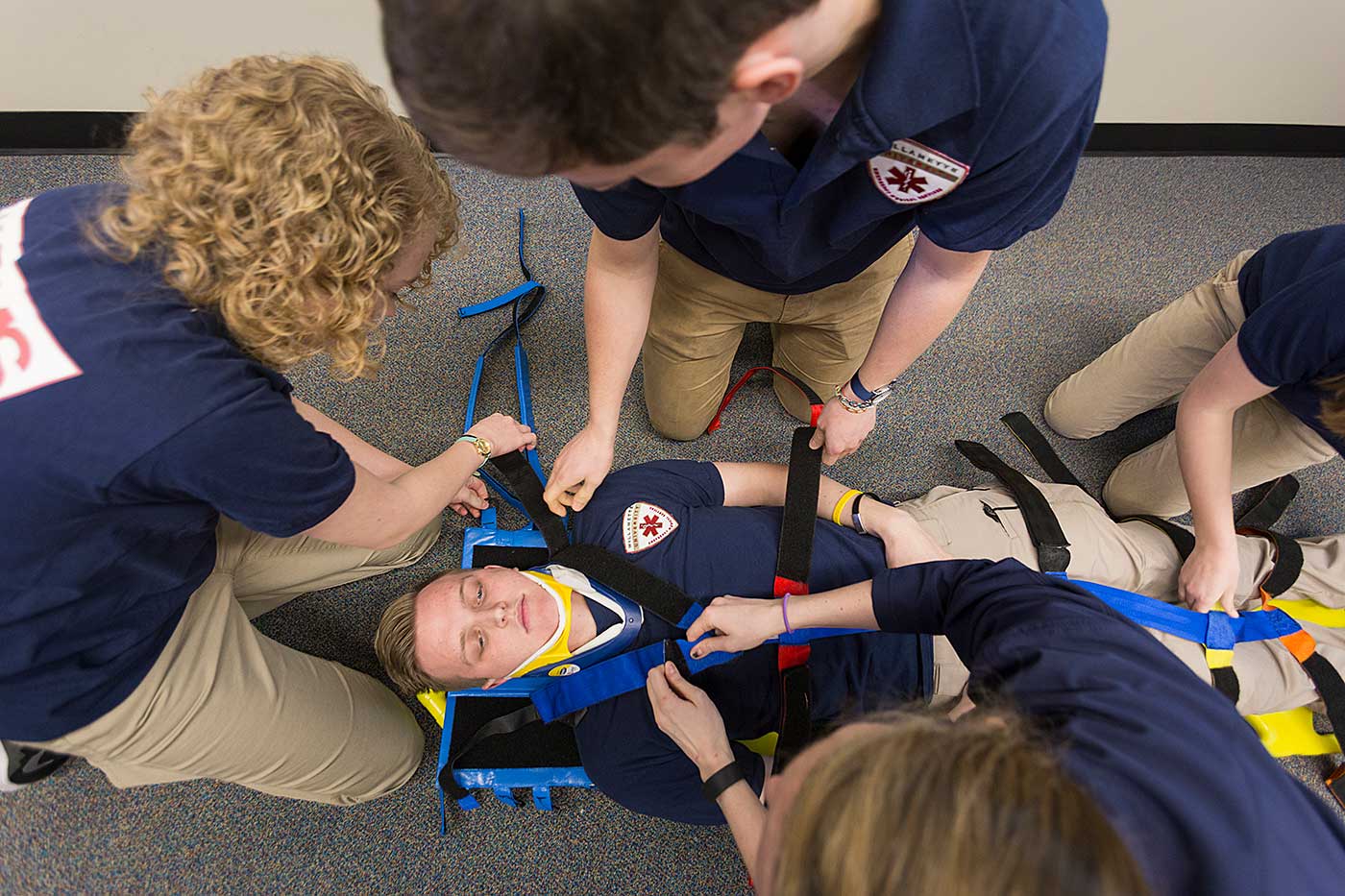If your future job requires treating anything from cardiac arrest to responding to 911 calls, nothing tops real experience.
Building that experience as an undergraduate is even better.
At Willamette, students run a state-licensed Emergency Medical Service (WEMS) on weekends that counts toward patient interaction hours for medical school or other careers. From 5 p.m. Friday to 5 p.m. Sunday, one supervisor and at least one medic respond to emergencies — at no cost to students.
Medical professionals say managing real calls under supervised guidance is invaluable for future health care workers, whose role combines elements of medical care, public health and public safety.
Navigating a high-stress environment taught Kelli O’Brien BA/MBA ’21 she can work well under pressure. She said the team management skills she learned has given her an edge over health practitioners, who traditionally don’t gain that experience in college.
“It’s one of those things you can only learn by doing,” she said. “WEMS is a great, low-cost experience that allows students to see how well they respond in emergency situations.”
Practical experience
Jason Snider ’97 — a practice director at Kaiser Permanente Northwest in Portland — and Ross Stout ’85/MBA ’93 — Willamette’s director of campus safety — founded WEMS in 1997. It’s the only student-run EMS program in the state registered with the National Collegiate Emergency Medical Services Foundation, an organization that tracks college EMS programs nationwide.
Snider had a background as an EMT and paramedic when he started the emergency service. Responding to calls helps you realize “not every patient matches the textbook symptoms, and you still have to act even when you’re not exactly sure what’s wrong,” he said.
WEMS encourages students to think like a clinical health care provider and understand the nature of a patient-provider relationship. That knowledge is useful for both direct patient and administrative careers, he said.
Current WEMS members say participation has helped them maintain their EMT license, help them become a physician assistant, serve their community and teach at a school district.
Real service
WEMS operates according to the same standards — and follows the same laws — as a private service.
Membership requires education and training. Students must pass an emergency medical responder class, a state exam and a WEMS test before shadowing a call. After being accepted as a WEMS medic, a student can go on calls with a supervisor, usually an EMT.
Like other state-licensed emergency departments, WEMS must follow federal guidelines regarding patient privacy. Nathan Brown ’22, an exercise and health science major and WEMS’ acting-president, said although receiving help from another classmate might feel awkward, WEMS by law cannot discuss the call, the patient’s information or condition with anyone not directly related to their medical care.
That privacy extends to all cases. The biggest misconception about WEMS is that because calls are routed through campus safety, those who use the service can get in trouble. Not true, said Brown.
“They will ask for names of people and try to find out what happened, but no one will get in trouble for that,” he said. “They’re here for the safety of everyone and we’re here for the safety of the patient.”
This semester, WEMS is changing shift schedules and expanding service hours. If membership grows, it can potentially offer training experiences it had in the past, such as recreating accidents with the Salem Fire Department and Salem SWAT.
But even if students don’t need WEMS for a career, it should be their first call in an emergency, Brown said. WEMS responds faster than a city ambulance and it’s free, saving students upwards of hundreds of dollars, he said.
“We don’t turn anyone down for anything,” he said. “If they call, we show up.”


